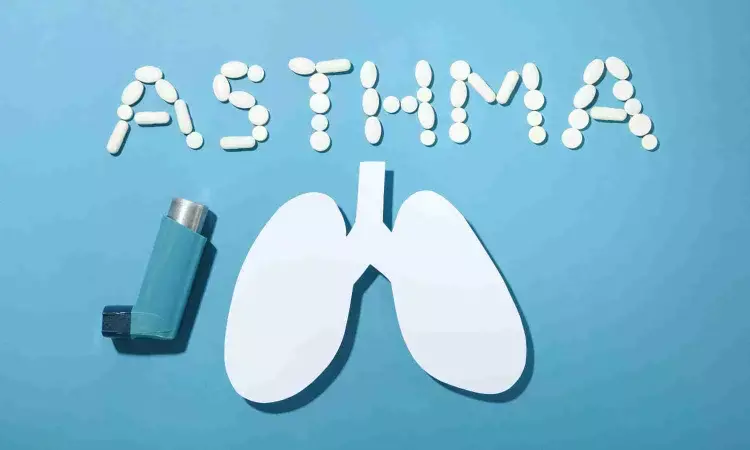- Home
- Medical news & Guidelines
- Anesthesiology
- Cardiology and CTVS
- Critical Care
- Dentistry
- Dermatology
- Diabetes and Endocrinology
- ENT
- Gastroenterology
- Medicine
- Nephrology
- Neurology
- Obstretics-Gynaecology
- Oncology
- Ophthalmology
- Orthopaedics
- Pediatrics-Neonatology
- Psychiatry
- Pulmonology
- Radiology
- Surgery
- Urology
- Laboratory Medicine
- Diet
- Nursing
- Paramedical
- Physiotherapy
- Health news
- Fact Check
- Bone Health Fact Check
- Brain Health Fact Check
- Cancer Related Fact Check
- Child Care Fact Check
- Dental and oral health fact check
- Diabetes and metabolic health fact check
- Diet and Nutrition Fact Check
- Eye and ENT Care Fact Check
- Fitness fact check
- Gut health fact check
- Heart health fact check
- Kidney health fact check
- Medical education fact check
- Men's health fact check
- Respiratory fact check
- Skin and hair care fact check
- Vaccine and Immunization fact check
- Women's health fact check
- AYUSH
- State News
- Andaman and Nicobar Islands
- Andhra Pradesh
- Arunachal Pradesh
- Assam
- Bihar
- Chandigarh
- Chattisgarh
- Dadra and Nagar Haveli
- Daman and Diu
- Delhi
- Goa
- Gujarat
- Haryana
- Himachal Pradesh
- Jammu & Kashmir
- Jharkhand
- Karnataka
- Kerala
- Ladakh
- Lakshadweep
- Madhya Pradesh
- Maharashtra
- Manipur
- Meghalaya
- Mizoram
- Nagaland
- Odisha
- Puducherry
- Punjab
- Rajasthan
- Sikkim
- Tamil Nadu
- Telangana
- Tripura
- Uttar Pradesh
- Uttrakhand
- West Bengal
- Medical Education
- Industry
Iron Deficiency Anemia Associated with High Risk of Asthma, unravels study

Iron Deficiency Anemia Associated with High Risk of Asthma suggests a new study published in the Frontiers in Pediatrics
Observational studies have suggested an association between iron deficiency anaemia (IDA) and asthma, which may affect the occurrence of asthma. However, whether IDA is a new management goal for asthma remains to be determined. They conducted a two-sample Mendelian randomization(MR)analysis to assess the association between IDA and asthma. They performed a two-sample MR study to assess a causal relationship between IDA (ncase = 12,434, ncontrol = 59,827) and asthma (ncase = 20,629, ncontrol = 135,449). Inverse variance weighted (IVW) was used as the primary method for the analyses. Furthermore, we used weighted medians and MR-Egger to enhance robustness. Data linking genetic variation to IDA and asthma were combined to assess the impact of IDA on asthma risk.
Results: There are five single nucleotide polymorphisms (SNPs) were used as genetic tool variables for exposure factors. Genetically determined IDA was significantly associated with an increased risk of asthma (OR = 1.37, 95% CI: 1.09-1.72, p = 0.007). There was little heterogeneity in the MR studies and no evidence of level pleiotropy was found. In the MR study, our findings emphasize that IDA may be associated with a high risk of asthma, indicating a potential role for IDA in the development of asthma. Future research needs to elucidate its potential mechanisms to pave the way for the prevention and treatment of asthma.
Reference:
Li M, Chen Z, Yang X, Li W. Causal relationship between iron deficiency anemia and asthma: a Mendelian randomization study. Front Pediatr. 2024;12:1362156. Published 2024 May 23. doi:10.3389/fped.2024.1362156
Dr. Shravani Dali has completed her BDS from Pravara institute of medical sciences, loni. Following which she extensively worked in the healthcare sector for 2+ years. She has been actively involved in writing blogs in field of health and wellness. Currently she is pursuing her Masters of public health-health administration from Tata institute of social sciences. She can be contacted at editorial@medicaldialogues.in.
Dr Kamal Kant Kohli-MBBS, DTCD- a chest specialist with more than 30 years of practice and a flair for writing clinical articles, Dr Kamal Kant Kohli joined Medical Dialogues as a Chief Editor of Medical News. Besides writing articles, as an editor, he proofreads and verifies all the medical content published on Medical Dialogues including those coming from journals, studies,medical conferences,guidelines etc. Email: drkohli@medicaldialogues.in. Contact no. 011-43720751


